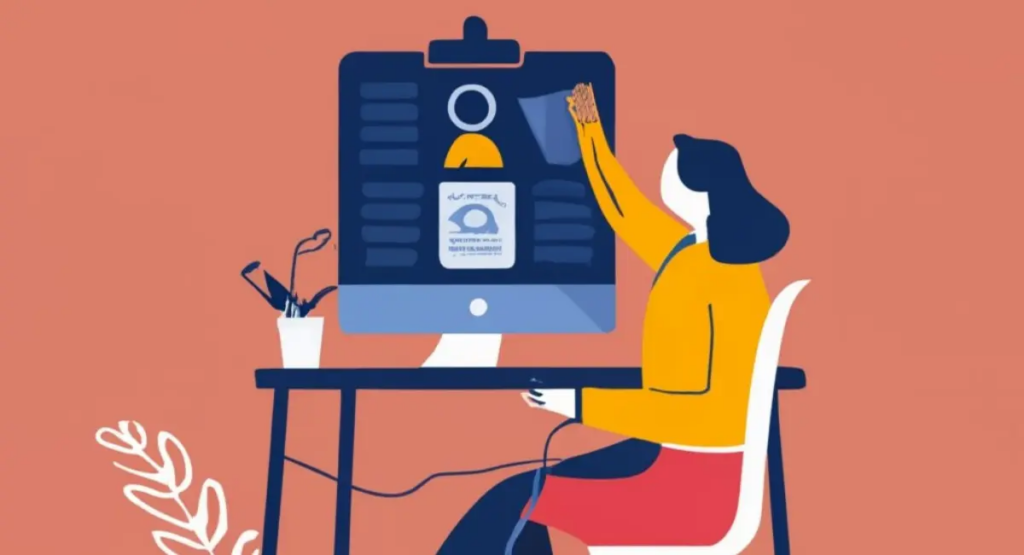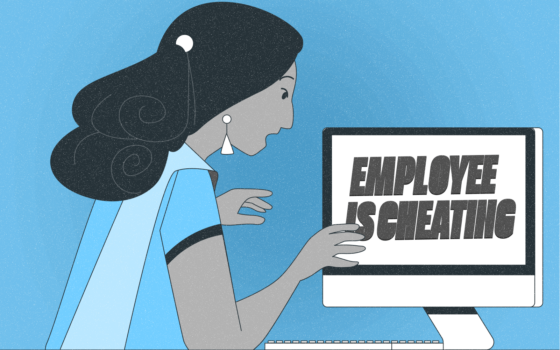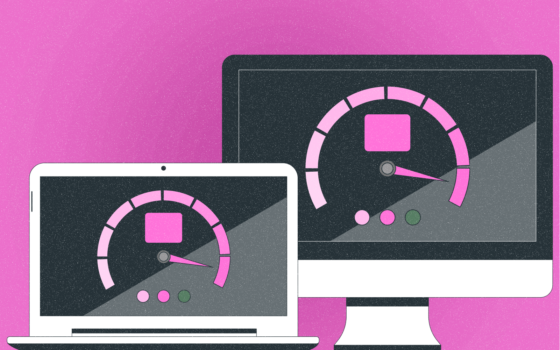Remote Work Accountability: How to Keep Your Team On Track

In today’s digital age, remote work is becoming increasingly popular, and the need for strong accountability practices comes with it.
But how can you keep your team on track when everyone works from different locations? Enter remote work accountability – the secret ingredient for success in a distributed workforce.
In this blog post, you’ll learn about the importance of remote work accountability, its challenges, and effective strategies for employers and employees to foster a culture of accountability in remote teams.
Get more out of your business
Get the best employee engagement content every week via mailing list
Key Takeaways
- Foster trust, productivity, and success through clear expectations, communication channels, and tools.
- Create structure, set boundaries, and utilize time management techniques to boost personal accountability.
- Employers can monitor progress and foster a culture of improvement with project management software and regular check-ins/evaluations.
The Essence of Remote Work Accountability

Accountability revolves around honoring agreed-upon commitments. It breeds trust between people and emphasizes one’s responsibilities.
Team members have all agreed to take on their respective roles and responsibilities in the remote work environment. This underpins a successful team dynamic. So why is accountability necessary in remote teams? For remote employees, it’s a cornerstone for productivity and harmony.
When team members are accountable, trust and employee engagement increase, ultimately contributing to the remote team’s success.
Clear expectations and goals set by employers can foster remote work accountability, implement effective communication channels, provide necessary tools and training, and conduct regular check-ins and evaluations.
On the other hand, remote workers can maximize personal accountability by creating a rigorous routine, establishing boundaries, minimizing distractions, and employing time management techniques.
Challenges in Maintaining Accountability for Remote Workers

Maintaining accountability when working remotely presents challenges. Some common obstacles include a lack of face-to-face communication, difficulty in tracking progress, and the potential for misinterpretation of updates.
Remote workers need to understand that their daily tasks and assignments directly affect an organization’s results, which drives them to give their best even for minute tasks, leading to great organizational success and fostering employee accountability.
Commitments should be written down in remote teams to prevent them from falling through the cracks or remaining vague. Written requests for information can be confusing. Team members might worry about their position or think their manager is unhappy or mad.
Moreover, the lack of in-person communication makes gathering key performance indicators and other information harder in remote teams.
Strategies for Employers to Foster Remote Work Accountability

This section will cover strategies for employers to foster remote work accountability. We’ll discuss establishing clear expectations and goals, implementing effective communication channels, and providing necessary tools and training.
These strategies can enable employers to create a remote work environment where employees feel valued, recognized, and invested, leading to:
- Increased trust
- Employee engagement
- Productivity
- Decreased turnover rates
Establishing Clear Expectations and Goals
Improving work-from-home accountability relies heavily on setting clear expectations.
By providing employees with clearly defined, measurable goals with strict deadlines, employers can ensure that both the employer and employee are on the same page, thus fostering a culture of accountability.
When setting goals for remote workers, employers should consider routine objectives employees need to accomplish, as well as some ambitious targets they can shoot for.
Unclear expectations can have a wide range of negative impacts on employees. Grievances, conflicts, and unfair dismissal claims are just some examples that can be very expensive for the organization.
Setting clear expectations and goals can help employers focus remote workers on their tasks, leading to increased productivity and a more harmonious remote work environment.
Implementing Effective Communication Channels
Remote teams need effective communication channels to stay connected and take responsibility for their work. Some of the best communication channels for remote teams include:
- Zoom
- Microsoft Teams
- Google Hangouts
- Slack
- GoToMeeting
- Basecamp
- Other collaborative software, instant messaging, email, video conferencing, meetings, and project management tools.
These communication channels can help remote teams stay connected, collaborate more effectively, and ensure everyone is on the same page. It can also help reduce miscommunication and ensure everyone is accountable for their work.
For effective use of these communication channels, follow these steps:
- Establish clear expectations for communication.
- Schedule regular check-ins to keep everyone updated.
- Employ project management software to track progress and tasks.
By following these guidelines, remote teams can maximize the benefits of these communication channels and work more efficiently with their remote team members.
Furthermore, make sure that everyone is aware of the communication channels and that they are comfortable using them, as it is essential.
Providing Necessary Tools and Training
Providing the right tools and training ensures remote workers have the resources to complete their tasks efficiently and effectively. Employers can offer various tools, such as Microsoft 365, to help remote workers stay organized and accountable.
Additionally, creating a central repository of information, such as standard operating procedures (SOPs), checklists, and training manuals, can provide essential resources for the entire team.
Keeping the information in the repository updated is crucial to ensure the entire team can access the most recent data.
Employers can support and empower remote workers by providing tools, training and creating an environment that increases accountability and employee productivity.
Strategies for Remote Workers to Boost Personal Accountability

This section covers strategies for remote workers to boost their accountability. By creating a structured routine, setting boundaries to minimize distractions, and utilizing time management techniques, remote workers can take control of their work and stay accountable for their tasks.
Implementing these strategies can enhance productivity and help remote workers maintain a healthy work-life balance.
Creating a Structured Routine
A structured routine helps remote workers maintain a healthy work-life balance and stay focused on their tasks. Establishing a morning routine consisting of activities such as:
- relaxing with a cup of coffee
- exercising
- showering
- meditating
- journaling
- engaging in a gratitude practice
It can set the tone for a productive day.
Adhering to a structured routine enables remote workers to stay on track with their work while also allocating time for personal activities and self-care. This balance is essential for maintaining productivity, job satisfaction, and overall well-being while working remotely.
Setting Boundaries and Minimizing Distractions
Setting boundaries and minimizing distractions are essential for remote workers to concentrate on their work and be more productive. Here are some strategies to help create an environment conducive to focused work:
- Turn off phone notifications
- Use website blockers to limit access to non-work-related sites during work hours
- Check emails or social media at specific times.
By implementing these strategies, remote workers can create a productive remote setting, ensuring a conducive remote environment for the remote workforce while working from home.
Effectively communicating and setting expectations with family and friends about working hours and availability can also help minimize interruptions during work hours. Establishing boundaries and minimizing distractions allow remote workers to remain accountable for their tasks and maintain a healthy work-life balance.
Utilizing Time Management Techniques
Remote workers can effectively manage their workload and stay on track using time management techniques like the Pomodoro Technique.
The Pomodoro Technique involves working in short bursts and taking breaks, which has been shown to fuel creativity, improve focus, and increase productivity.
Another effective time management method is the “eat the frog” technique, which involves tackling the most dreaded task first thing in the morning, preventing procrastination.
These time management techniques can help remote workers stay focused and accountable.
They can ensure completing tasks on time and contributing to the overall success of their remote team by effectively managing their time.
Monitoring Remote Work Performance and Accountability

This section presents methods for monitoring remote work performance and accountability. Employers can use project management software and regular check-ins and evaluations to ensure remote workers meet their goals and deadlines while providing valuable feedback for improvement.
Implementing these monitoring strategies can create an environment that holds remote workers accountable for their work and continuously improves performance.
Using Project Management Software

Project management software allows employers to track progress and ensure remote workers meet their goals and deadlines. Some popular project management tools include:
- Trello
- Wrike
- Monday.com
- Microsoft Projects
- Asana
- Basecamp
- Jira
- ClickUp
- Airtable
These productivity monitoring tools offer features like task management, project tracking, collaboration tools, and reporting capabilities.
Utilizing project management software enables employers to:
- Keep track of remote workers’ tasks and deadlines
- Ensure that everyone is held accountable for their work
- Increase productivity and efficiency of remote teams
- Contribute to the organization’s success.
Conducting Regular Check-ins and Evaluations
Regular check-ins and evaluations help remote workers stay accountable for their work and provide opportunities for feedback and improvement. Check-ins can include:
- One-on-one meetings
- Team meetings
- Surveys
- Performance reviews
These check-ins and evaluations ensure that employees meet their goals, provide feedback and guidance, and help identify areas for improvement.
Successful check-ins and evaluations require employers to set clear expectations, provide feedback, and create an open and honest dialogue.
By regular check-ins with remote workers and evaluating their performance, employers can foster a culture of accountability and continuous improvement within their remote teams.
Building Trust and Accountability in Remote Teams

Remote teams must build trust, accountability and maintain a positive work environment to ensure productivity.
Here are some strategies to achieve this:
- Empower autonomy and decision-making.
- Establish clear expectations and goals.
- Implement effective communication channels.
- Provide necessary tools and training.
By following these strategies, employers can create a remote working environment for leaders and employees.
Key ways to foster trust and accountability in remote teams include establishing a structured routine, setting boundaries, minimizing distractions, and utilizing time management techniques.
Implementing these strategies can help remote teams cultivate a culture of trust and accountability, thereby increasing productivity and overall success.
Case Studies: Successful Remote Work Accountability Practices

Successful remote work accountability practices highlighted in case studies can inspire and offer valuable insights for your remote team’s strategy implementation. For example, Freshwater implemented award-winning management practices for remote working, ensuring accountability and success (source: gov. wales).
In another case, 14 industry experts from the Forbes Business Council shared their tips for holding remote teams accountable, providing invaluable insights and strategies (source: Forbes).
These case studies highlight successful approaches to remote work accountability and can provide invaluable insights for managing remote teams effectively. By learning from these examples, employers and remote workers can create a remote work environment that fosters accountability, productivity, and success.
Summary
In conclusion, remote work accountability is essential for the success of remote teams. By implementing strategies such as setting clear expectations and goals, fostering effective communication, providing necessary tools and training, and utilizing time management techniques, employers and remote workers can create a culture of accountability and trust within their remote teams. As remote work continues gaining popularity, employers and employees must prioritize accountability and cultivate a supportive, productive remote work environment.
Frequently Asked Questions
How can accountability be enhanced in a virtual team?
Creating clear expectations, improving communication, and building habits around task planning and goal setting will foster accountability in a virtual team. Regular check-ins and team meetings help ensure everyone understands their purpose and builds positive relationships.
Do employers have a legal responsibility for employees who work remotely?
Yes, employers have a legal responsibility for remote employees. They must ensure they are given the same rights and benefits as any in-office employee, regardless of location. Various federal laws protect remote employees’ rights, guaranteeing fair wages and benefits to everyone working outside a traditional workplace.
How do you ensure employees are working remotely?
To ensure employees work remotely, establish daily check-ins, set productivity standards, provide necessary tools, schedule team interaction, regularly follow up with remote employees, and track productivity.
How do you make remote work fun for employees?
Create friendly competition by setting collective goals and encouraging recognition, host virtual team scavenger hunts and games, and introduce show-and-learn sessions. Host virtual company events, start doing tours of remote locations, and hold remote team-building activities to make remote work fun for employees.


